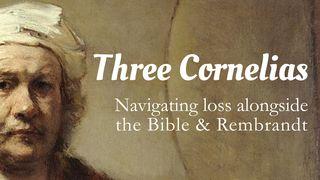Exodus: Free My PeopleSample

Pharaoh's Folly
By Lisa Supp
“So the Lord said to Moses: ‘Pharaoh’s heart is hard; he refuses to let the people go.’”—Exodus 7:14 (NKJV)
Much like a tennis match, the hardening of Pharaoh’s heart lobs back and forth. From chapter 4 through chapter 20, Pharaoh is either hardening his heart, God is hardening it, or it’s simply made hard.
It begs the question, “Who is in control here?” It also forces the confrontation of a sensitive topic: God’s sovereignty versus a person’s free will. While it’s difficult to make a solid determination of what the text implies, I think it’s worth exploring to understand God’s own heart and how this relates to our relationship with Him.
First, let’s portion out the words “hard” and “hardened.” According to the Theological Wordbook of the Old Testament, the word “hard” (kāḇēḏ) is used to describe Pharaoh and his “refusal to be sensitive . . . to the pleas of the Hebrew people.” It means heavy, and it’s used in the active tense—Pharaoh initially and purposefully hardened his heart.
“Hardened” (ḥāzaq), as it applies to Pharaoh, means “to make firm,” and it has both an active and passive role. Pharaoh actively hardened his heart. Then, the circumstances God placed before him served to solidify his bitter nature. In this way, God hardened his heart.
Now, let’s portion out God and Pharaoh. First, what do we know about God? Even if all we had to read was the Book of Exodus, we’d learn He’s merciful and just. He presented Himself to Pharaoh through Moses by providing miracles and signs of His power. He then gave Pharaoh several chances to alter the outcome of his actions. God extended mercy while at the same time allocated justice by allowing Pharaoh to experience the fallout.
Proverbs 11:6 (NASB) states, “The treacherous will be caught by their own greed.” This was Pharaoh’s folly. By nature, he was a cruel man driven by pride and fueled by power who chose to resist the Lord. Knowing he would do this, God used him as a vessel to show His power and make known the riches of His mercy and glory (Romans 9:22–23). In this case, mercy for the Hebrew people and numerous Egyptian converts, bringing Him glory in their deliverance.
As I come to grips with this dilemma of God “hardening” a person’s heart, I see a synergy of causality and sovereignty. Pharaoh had free agency and was ultimately responsible for the choices he made; yet God, in His foreknowledge, used the deficit of one man to save the lives of many.
Even so, I’m confronted with another sensitive topic: What’s the condition of my heart? Am I yielding to God, or am I the star of my own show? Using the tennis match analogy: The ball is in my court—in yours, too—to be a vessel of His glory.
Pause: While I’m sure you’re not as rigid as Pharaoh, are there any places in your heart that are hardened to God? Have circumstances given rise to doubt or has disappointment created bitterness?
Practice: Don’t be discouraged—you’re not alone. But remember, we’re a new creation in Christ Jesus. The old nature is gone and the new is here (2 Corinthians 5:17). Even so, we all could do our hearts some good by realigning them with God’s. And if you don’t have a relationship with Jesus, think about how He is reaching out and revealing Himself to you. Consider how His mercy has triumphed over justice by giving His life for you.
Pray: Lord, You are the Potter, and I am the clay. Far be it from me to question Your purpose. Help me to be moldable. Shape my life to be in the image of Jesus Christ. Amen.
About this Plan

In part two of this seven-part study through the Book of Exodus, we'll explore Exodus 6–13.
More
We would like to thank Calvary Chapel Ft. Lauderdale for providing this plan. For more information, please visit: http://Resources.CalvaryFTL.org/Exodus
Related Plans

The Chosen + BibleProject | Season 5 Reading Plan

The DEEP Method: How to Discover, Explore, Engage, Practice God's Word

How We Gave $1 Million (Without Being Rich)

Praying T.A.C.O.S. – a Fresh Way to Talk With God

Cornerstone: Rebuild, Renew, Restore

Psalms Daily Reading Plan

Three Cornelias: Navigating Loss With the Bible & Rembrandt

Road to Pentecost: Five Days of Spiritual Renewal

Journey Through Hebrews
